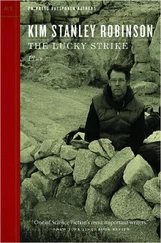2. Towns and settlements are free to establish their own local laws, political systems, and cultural practices, except where these laws, systems, or practices would abrogate the individual rights guaranteed by this global constitution.
3. Citizens of each town and settlement shall be entitled to all the rights guaranteed in this constitution, and to all the rights of all the other towns and settlements.
4. Towns and settlements shall not form regional political alliances that would function as the equivalent of nation-states. Regional interests must be pursued and defended by occasional and temporary coordinated activities between towns and settlements.
5. No town or settlement shall practice physical or economic aggression on any other town or settlement. Disagreements between any two or several towns or settlements are to be resolved by arbitration or judicial ruling by the appropriate court.
6. The physical extent of local law established by any town or settlement shall be set by the land commission, in consultation with the towns and settlements affected by the judgment. Tented craters and canyons, and freestanding tent towns, have obvious physical boundaries that can function as the equivalent of “city limits,” but these towns, as well as diffuse open-air settlements, have legitimate “spheres of influence” that will often overlap the spheres of influence of neighboring towns and settlements. The land inside these spheres of influence is not to be construed as “territory” owned by the towns and settlements, in keeping with the general withdrawal from Terran notions of sovereignty and property as such. Nevertheless, all towns and settlements will have the legal right to consideration concerning all land-use issues, including water rights, within their sphere of influence as established by the land commission.
Article 5. Individual Rights and Obligations
Section 1. Individual Rights
1. Freedom of movement and assembly.
2. Religious freedom.
3. Freedom of speech.
4. Right to vote in global elections not to be abridged.
5. Right to legal counsel, timely trial, and habeas corpus.
6. Freedom from unreasonable search or seizure, double jeopardy, or involuntary self-incrimination.
7. Freedom from cruel or unusual punishments.
8. Right to choice of employment.
9. Right to the majority of the economic benefits of one’s own labor, as calculated by formulas to be approved by the economic commission, but never less than 50 percent in any case.
10. Right to a meaningful part in the management of one’s work.
11. Right to a minimum living wage for life.
12. Right to proper health care, including the body of practices known collectively as the “longevity treatment.”
Section 2. Individual Obligations
1. The citizens of Mars shall, over the course of their lives, give one m-year of work to global service and the public good, such work to be defined by the economic commission, but never to be military or police work.
2. The right to own or bear lethal weapons is expressly denied to everyone on Mars, including police or riot control officers.
Article 6. The Land
Section 1. Terraforming Goals and Limits
1. The primal state of Mars shall have legal consideration, and shall not be altered except as part of a terraforming program dedicated to making the surface of the planet survivable by humans up to the six-kilometer altitude contour. Above the six-kilometer elevation the goal shall be to keep the surface as close to its primal condition as possible.
2. The air pressure of the atmosphere shall not exceed 350 millibars at six kilometers above the datum, in the equatorial latitudes (30 degrees north to 30 degrees south).
3. The amount of carbon dioxide in the atmosphere shall not exceed ten millibars.
4. The sea level of Oceanus Borealis (the northern sea) shall not exceed the—1 kilometer contour.
5. The sea level of the Hellas Basin sea shall not exceed the datum.
6. Argyre Basin is to remain a dry basin.
7. Deliberate introduction of any and all species, natural or engineered, is to be approved by the environmental court’s agencies, after review for environmental impacts on already existing biomes and ecologies.
8. No terraforming methods will be employed that release radiation to the land, groundwater, or air of Mars.
9. No terraforming methods will be employed which are unstable and prone to rapid collapse, or that do violent damage to the Martian landscape, as determined by the environmental court.
Article 7. Amendments to this Constitution
Whenever two-thirds of the members of both houses of the legislature, or a majority of the voters in a majority of the towns and settlements of Mars, shall propose amendments to this constitution, the proposed amendment shall be put to a general global vote during the next scheduled global election, and shall require a super-majority of two-thirds to pass.
Article 8. Ratification of the Constitution
After approval of the text of this constitution, point by point, by a majority vote of the representatives of the constitutional convention, the constitution as a whole shall be presented to all the people of Mars over five m-years old, for a vote of approval or disapproval, and if it receive a supermajority of two-thirds in approval, shall become the supreme law of the planet.
Chapter 14
Some Worknotes and Commentary on the Constitution, by Charlotte Dorsa Brevia
PREAMBLE
Though the very idea of a constitution was opposed by some, the notion of a constitution as a “structure for debate” carried the day, and the process proceeded.
1.1.2The idea of government as jury duty has rarely been enacted, but the theoretical arguments for the idea were interesting enough to inspire the framers to try it. The possibility that any citizen can become a lawmaker has had profoundly positive psychological and social impacts, even though the actual duma in practice has not usually been the driving force in legislative matters—and, yes, sometimes has been a circus, and always has a (refreshing) feel of unprofessionalism. But combined with the economic autonomy enjoyed by the ordinary person, this tangible sensation of self-government has raised the concept of citizenship to new heights of responsibility, and given people a stronger sense of the collective that has always existed.
2.1.1 A seven-member executive council is derived from the Swiss system. The aim is to depersonalize the executive functions of government, without rendering them inoperative by giving them over to an entire congressional-sized body. Though political fighting among the council membership is inevitable, votes quickly decide arguments and then the executive branch has decided on a course of action. This is not much different than a council of advisers influencing a single executive. But it does remove the tendency to personalize politics, to demonize or valorize individuals when really, in this particular realm of social life, it is policy that matters. The method has worked well in Switzerland, where many well-educated citizens do not know who their president is, but know where they stand on all issues current in the Swiss polity. And the same has proved to be true on Mars.
2.1.2 The Australian ballot system is required so often in the constitution because the framers became convinced that it encourages “reaching to the Other” by candidates. Voters vote for at least three candidates, placing them first second third and so on, and their first choice gets more points in a weighted system. Candidates are thus encouraged to seek second- and third-place votes from voters outside their own constituency, whatever it might be. On Earth this has worked very well in fractured electorates, healing some profound divisions over time, and given the polyglot nature of Martian society, the framers decided it was appropriate for Mars as well.
Читать дальше
Конец ознакомительного отрывка
Купить книгу












